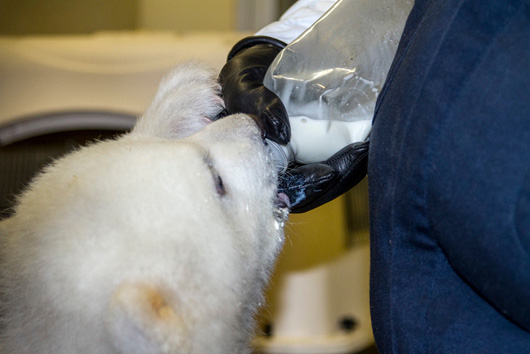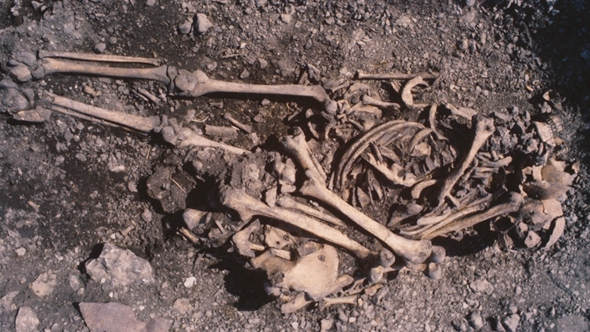Orphaned Polar Bear Arrives in NY

Get the world’s most fascinating discoveries delivered straight to your inbox.
You are now subscribed
Your newsletter sign-up was successful
Want to add more newsletters?

Delivered Daily
Daily Newsletter
Sign up for the latest discoveries, groundbreaking research and fascinating breakthroughs that impact you and the wider world direct to your inbox.

Once a week
Life's Little Mysteries
Feed your curiosity with an exclusive mystery every week, solved with science and delivered direct to your inbox before it's seen anywhere else.

Once a week
How It Works
Sign up to our free science & technology newsletter for your weekly fix of fascinating articles, quick quizzes, amazing images, and more

Delivered daily
Space.com Newsletter
Breaking space news, the latest updates on rocket launches, skywatching events and more!

Once a month
Watch This Space
Sign up to our monthly entertainment newsletter to keep up with all our coverage of the latest sci-fi and space movies, tv shows, games and books.

Once a week
Night Sky This Week
Discover this week's must-see night sky events, moon phases, and stunning astrophotos. Sign up for our skywatching newsletter and explore the universe with us!
Join the club
Get full access to premium articles, exclusive features and a growing list of member rewards.
Kali — the orphaned polar bear cub that was rescued in Alaska earlier this year — arrived safely at a new home in Buffalo, N.Y., early Wednesday (May 15) after a long trip aboard a UPS cargo plane.
Back in March, the young bear was picked up by hunters who unwittingly shot its mother near Point Lay, Alaska, according to news reports at the time. After being examined by wildlife officials, Kali was transferred to the Alaska Zoo in Anchorage to be cared for temporarily.
"The Alaska Zoo has done a tremendous job of providing excellent, temporary care for Kali," Dan Ashe, director of the U.S. Fish and Wildlife Service, said in a statement earlier this week. "I would like to personally thank the zoo for stepping up – at moment's notice – to care for this cub. Now, as Kali leaves Alaska for his next short-term home, we are confident that the Buffalo Zoo will provide the best of care for Kali as the Service makes a final determination on a permanent home for the cub."
At nearly 6 months old, Kali (pronounced "Cully"), now weighs 65 pounds (29 kilograms). Officials decided to send the cub to the Buffalo Zoo so it could be raised alongside a female polar bear cub nicknamed Luna that was abandoned by its mom Anana. Letting the two cubs interact and play together could help ensure that they don't get too attached to their human keepers.
But Buffalo might be just a temporary home for Kali; officials are considering the Saint Louis Zoo as a final destination for the bear.
The polar bear is the largest species of bear on the planet. An adult male weighs between 775 pounds and 1,200 pounds (351 and 544 kilograms) and will reach its full adult size between the ages of 8 and 14 years. Adult females are half the size of their male counterparts — 330 to 650 pounds (50 to 295 kg) — and reach full size at around age 5 to 6 years. Polar bears in captivity typically live into their 30s.
In the wild, polar bears are found in Russia, Alaska, Canada, Greenland and Norway's Svalbard archipelago, and the animals are threatened by declining Arctic sea ice, oil development, pollutants and hunting. In May 2008, United States listed the polar bear as a threatened species under the Endangered Species Act, while in Canada and Russia they are listed as a species of special concern.
Get the world’s most fascinating discoveries delivered straight to your inbox.
Follow Megan Gannon on Twitter and Google+. Follow us @livescience, Facebook & Google+. Original article on Live Science.
 Live Science Plus
Live Science Plus











